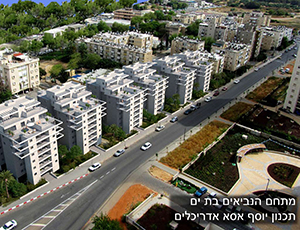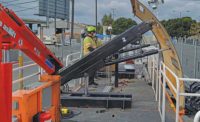A Chicago developer has signed an agreement for Israel's largest-ever seismic retrofit and upgrade project to bring 24 apartment buildings in a Tel Aviv suburb in compliance with stricter earthquake building standards. The $78-million project in Bat Yam also involves adding 2.5 floors to each building.


Israel lies along the Syrian-African Rift, an active earthquake zone. Two major earthquakes have been reported in the area in the past 200 years. In recent years the government has been looking for ways to make buildings constructed prior to 1980 safer in order to comply with new building codes that went into effect that year. "Israel has hundreds of thousands of buildings that fall into this category and that would not withstand the horizontal force of an earthquake," says Zvi Abramovici, head of Tel Aviv-based Zvi Abramovici Civil Engineering, which specializes in retrofit and upgrade projects.
Until recently, there was little economic incentive for developers to upgrade older structures since projects required the backing of all apartment owners in a building. Only a few dozen apartment towers have actually been upgraded in the past few years. But a recent change by the government's National Planning Commission now allows municipalities to grant additional building rights or roof rights to developers in exchange for bringing pre-1980 structures up to the new standard. New rules also lowered the number of owners that must approve the upgrade.
"The upgrading involves adding 25- to 35-cm-thick reinforced concrete walls to the exterior, which serve as the new core for strengthening the building," says Abramovici. The addition creates a 10- to-12-sq-m room for each apartment that serves as a shelter in the event of an earthquake or hostilities, he adds. In most cases, elevators also will be added, built around a reinforced concrete shaft that further strengthens the building. When completed, the complex will have 343 new apartments, in addition to the 466 existing ones.
Construction is scheduled to begin by the end of the year and be completed by the end of 2014, says Dan Anbar, general manager and founder of Andev Development Group Ltd., which will manage the project. He added that the upgrade is a less expensive alternative to construction of new housing in a country with high building density and soaring cost of land.



Post a comment to this article
Report Abusive Comment